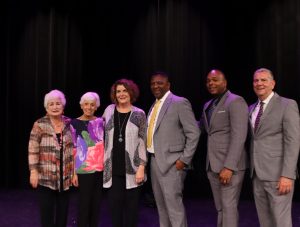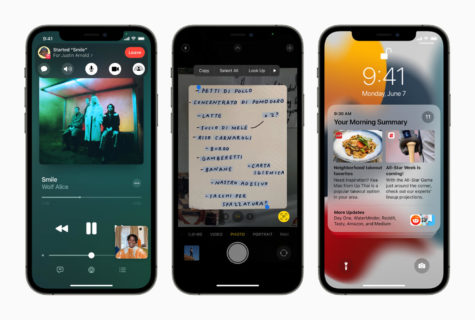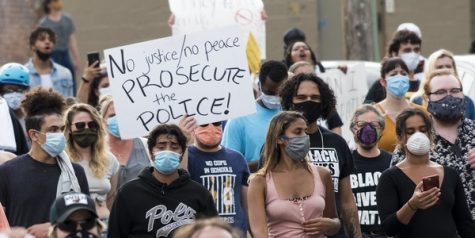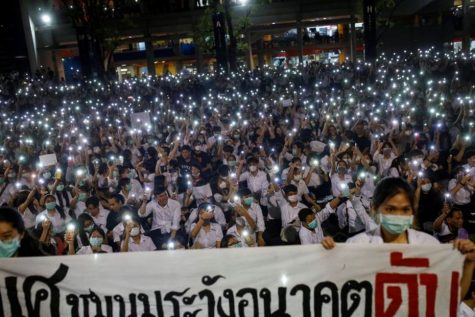CDC issues new guidelines on mask use for the fully vaccinated
Outdoor activities without a mask are safe for the fully vaccinated
May 2, 2021
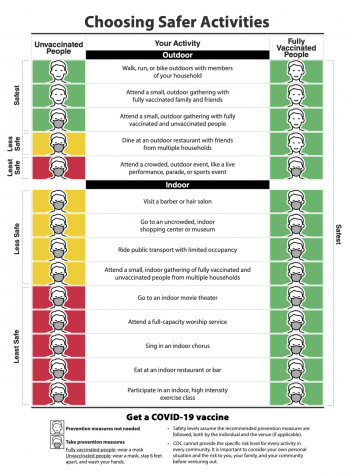
With growing numbers of vaccinated Americans, the Centers for Disease Control and Prevention (CDC) has issued new guiding principles for fully vaccinated people.
A new growing body of evidence has shown that fully vaccinated people are less likely to have an asymptomatic infection or transmit SARS-CoV-2 to others, but the lasting impacts of the vaccine are still under investigation.
CDC Director Dr. Rochelle Walensky spoke in a virtual White House briefing on Tuesday where she addressed the new principles. Fully vaccinated people are now free to unmask in small outdoor gatherings and outdoor dining with friends and others from multiple households. However, the federal health agency still suggests that even vaccinated people should avoid large indoor gatherings and the continuation of wearing masks in indoor public spaces such as the mall, movie theater and school.
“Generally, for vaccinated people, outdoor activities without a mask are safe. However, we continue to recommend masking in crowded outdoor settings and venues, such as packed stadiums and concerts where there is decreased ability to maintain physical distance and where many unvaccinated people may also be present,” Walensky said. “We will continue to recommend this until widespread vaccination is achieved.”
Now, the list of things fully vaccinated people can do goes as follows:
- Visit with other fully vaccinated people indoors without wearing masks or physical distancing
- Visit with unvaccinated people (including children) from a single household who are at low risk for severe COVID-19 disease indoors without wearing masks or physical distancing
- Participate in outdoor activities and recreation without a mask, except in certain crowded settings and venues
- Resume domestic travel and refrain from testing before or after travel or self-quarantine after travel
- Refrain from testing before leaving the United States for international travel (unless required by the destination) and refrain from self-quarantine after arriving back in the United States
- Refrain from testing following a known exposure, if asymptomatic, with some exceptions for specific settings
- Refrain from quarantine following a known exposure if asymptomatic
- Refrain from routine screening testing if asymptomatic and feasible
“In some small ways, I will change my behavior. For one, we now allow my parents and sister to come over to have dinner now that they are all fully vaccinated. But my biggest concern is my children. We still wouldn’t go near anyone without a mask for their sake, and we especially wear masks going out to places like the zoo and such. Plus I’m a teacher, so the mask stays,” said IB Theory of Knowledge teacher Aline Loges.
All 50 states have announced that everyone 16 and up is eligible for vaccines under US Food and Drug Administration emergency use authorizations. Currently, the Pfizer/BioNTech vaccine is the only one authorized for people ages 16 and 17, and beginning April 5, minors 16 and up in Florida could receive that vaccine. Since then, more Hillsborough County students have been vaccinated, some even fully vaccinated by now.
Students like Shayla McIntyre (’23) received their first dose of the Pfizer vaccine soon after Florida announced its expansion to everyone ages 16 and up. She will be fully vaccinated as of April 30, three weeks after her first dose.
“I feel a lot better about doing things such as eating in restaurants and hanging out with friends, but obviously still nothing too crazy. I’m glad the world is finally starting to open up again,” McIntyre said.






